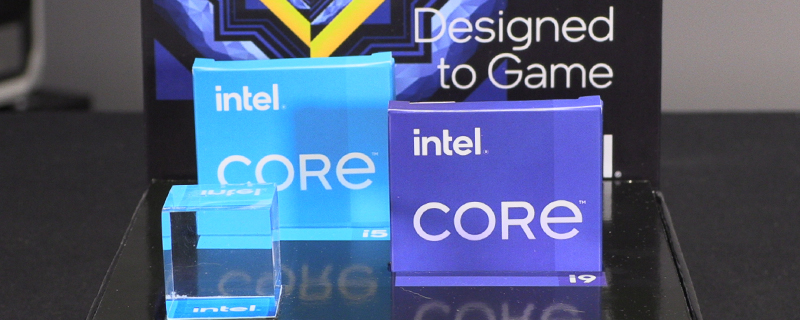Intel 11th Gen Core i5-11600K and Core i9-11900K Review
Conclusion
Finally, after what feels like an age the 11th Generation Rocket Lake Intel processors are upon us, designed for the Z590 chipset which finally brings the PCI Express 4.0 technology to the Intel platform. Whilst there are a few other elements which might be of interest to niche audiences, what it all boils down to is Intel with PCIe 4.0. Has it been worth the wait?
Despite both being 11th Generation the Core i5-11600K and Core i9-11900K are pretty different in how they go about things, particularly when you compare them to their 10th Generation predecessors. Because of this we’ll wrap them up individually.
Intel Core i5-11600K
The Core i5-11600K is probably the easiest to sum up, being as it is so closely related to the Core i5-10600K that came before. It has the same amount of cores and pretty much the same things going on under the hood. Where it scores is in the same way that all newer products score over their aging rivals, namely that it is a bit quicker and more refined than the 10th generation CPU and our results reflect this. In nearly every scenario the i5-11600K is faster at calculating things, out-performing the 10th gen.
By being the most affordable of the two processors we’re reviewing today it is more likely to find a home in a gaming system than the Core i9, and if that’s going to be your primary use then you’ll be very pleased with the results. Not only do you get PCI Express 4.0 which can bring massive improvements in storage throughput and thus loading times, but as our gaming graphs show there is a significant improvement in gaming performance too. Comparing the i5-10600K to the i5-11600K sees a two second improvement in Civilization VI turn times, 12 FPS in Total Warhammer, 10 in Shadow of the Tomb Raider and whopping 15 in Far Cry 5. Intel have always been excellent in gaming benchmarks and the Core i5-11600K smokes even the Ryzen 9 5950X. It’s a gaming beast.
Intel Core i9-11900K
Â
The Intel Core i9-11900K is much more complicated. When we first heard about it we were shocked that Intel had reversed the trend of processors in general and actually cut the number of cores from the 10 that we saw on the Core i9-10900K down to 8 on this particular processor. We can’t recall another flagship CPU replacement that’s lessened the core count in comparison to its predecessor. Maybe there is one, but none spring to mind. Leave a comment if you can think of one. Yes it has the new ABT – Adaptive Boost Technology – and that can, theoretically, push the clock speed way above that possible on the 10th Gen. However, as anyone who has spent any time with processors will know, clock speed can only get you so far and in the end there is no replacement for displacement. More cores will always be better.
Thus in a lot of the tests we run where core count is King the Core i9-10900K outperforms its replacement. The ability of the 11th Generation Core i9-11900K might be able to hit 5.3 GHz without any user tweaking, but this is bound very much to the thermal headroom available. We ran it underneath a Corsair H150i with the fans on maximum and we’d barely blinked before it pushed the temperature to 100°C and so dropped the clock speed. It’s going to be very much task dependant of course, and our thermal testing is a ‘worst case scenario’ situation, but anyone buying a Core i9 processor will do so because they have video encoding or 3D rendering to do, and you’re just not getting the same performance as you might hope for, or even see if you’re coming from the 10th gen version.
Two areas clearly score as big wins for the Core i9-11900K though. The old Intel standby of gaming is fantastic on this processor. It spanks ALL the competition, faster even than the 10th Gen 10-core i9. Additionally you’re getting PCI Express 4.0 so those of you with blisteringly quick NVMe drives or the very latest in GPU hardware can take full advantage. How desirable this processor is will depend massively upon how much cooling you have in your system and your intended use.
Summary
For the pure gamers in the audience the AMD Ryzen 5000 series is very close to the 11th Generation Intel, but Intel still have the lead. If all you want is great gaming and PCIe 4.0 then the Core i5-11600K is a spectacular choice. If, however, you want a true all-rounder and make heavy use of video encoding and rendering tasks the AMD platform still beats out the Core i9-11900K. Heck if you’re not interested in PCI Express 4.0 – although you should be – then the Core i9-10900K is faster in non-gaming tasks. However, today, right now, the Core i9-11900K is the best Intel+PCI Express 4.0 setup you can get. Just ensure you’ve got some beefy cooling.
Discuss the Intel Core i5-11600K and Core i9-11900K in our OC3D Forums.




